Ref.>"行政代執行の費用約 3,000万円は高いか"
>"「ルールに反したことがすべて」by 山本知事"
>"群馬の森の朝鮮人碑文に疑問を抱いたきっかけ"
>"日本市民団体「朝鮮人追悼碑を撤去しないで…歴史に背を向ける蛮行」"
-----------------------------------------
> 群馬の森・追悼碑の撤去代執行 山本知事「判決に基づき粛々と行う」(24/01/25)
↓(See detail of this article)、八重山日報の記事の翻訳(Translation of an article of the Yaeyama Nippo)
Translation; [Beam from the eyes! (158)] (by Osamu Tajima). A curse called "friendship"
>"[目からビーム!](158). 「友好」という名の呪い"
> 2022年の最高裁判判決から一年余。
> 群馬県立公園群馬の森に建つ、朝鮮人戦時徴用労働者の追悼碑撤去の、県による代執行がようやく行われる。
> この碑を建てた、"市民団体"や活動家による妨害行為も予想されるが、県は粛々と撤去作業を進めてほしい。
More than a year has passed since the Supreme Court handed down the sentence in 2022.
The removal-work using administrative subrogation by the pref. authority of the "memorial monument for war time conscripted Korean workers" erected in the "Gunma Prefectural Forest Park" will be finally done.
It's forecasted that acts of sabotage by the "civic organization," which erected the monument, and activists will be done. However, I hope that the prefectural authority will proceed with the removal-work calmly.
> そもそも碑に書かれているような強制労働は事実ではない。
> 戦時徴用を強制というなら、それは内地人もいっしょで、国民に課せられた義務に過ぎず、未払い賃金などに関しては日韓請求権協定ですべて解決済みである。
> それらをすべて無視する形で建てられた、あの追悼碑こそ歴史を歪曲した歴史修正の産物でしかない。
In the 1st place, forced labor as written on the monument isn't a historical fact.
If wartime conscription is described as coercion, the mainlanders were also applied it in the same say. It was simply a duty imposed on the nationals. Concerning the unpaid wages, etc., they were completely covered by Japan-RoK claim rights agreement.
That memorial monument, which was erected in a way to ignore all of these matters, is nothing but a product of historical revisionism distorting the history.
>「記憶、反省、友好」と碑には日英間の三か国語で記されている。
> この碑を建てた "市民団体"もそれを支援する総連や民潭といった組織も、本当に「友好」を望んでいるのだろうか。
> 友好は対等の関係にのみ生じる言葉だ。
> しかし、および韓国の文化に対等の人間関係は存在しない。
> 上か下か、正か邪か、被害者か加害者の二元論が基本である。
> だから、彼らは日常些細なトラブルでもすぐ被害者マウントを取りたがる。
> 被害者は加害者に対して絶対的優位に立つという文化なのだ。
> ゆえに韓国人は自分に非があっても絶対に謝らない。
> 翻って日本人はすぐ「ごめんなさい」と口にする。
> 人間関係を円滑にする方便と心得ているからだ。
> しかし、国際社会、とりわけ韓国との関係ではそれが命取りになる。
"Memory, reflection & friendship" is written on the monument in three languages -- English, Japanese and Korean.
Do both "the civic organization," that erected this monument, and the organizations to support it, such as "Chongryon" (the General Association of Korean Residents in Japan) and "Mindan" (the Korean Residents Union in Japan), really want "friendship"!?
Friendship is a word that only emerges in an equal-relations.
However, there are no equal human relations in (S)Korean culture.
The dualism is the basic, such as between superior and inferior, right and wrong, and victim and perpetrator.
Therefore, they immediately want to take a victim-mount position even in a trivial trouble in daily lives.
It's a culture in which the victim has an absolute advantage over the perpetrator.
Therefore, (S)Koreans never apologize even if they are wrong.
On the other hand, Japanese persons easily voice "I'm sorry."
The reason why is that they understand that it's a way to make human relations smoother.
However, when it comes to relations with the international community, especially with S. Korea, this can be fatal.
>「日本人は相手が謝ればそこで終わる。韓国人は相手が謝ればそこから始まる」
"For a Japanese person, if the counterpart apologizes, it's closed. For S. Korean, if the counterpart apologizes, it's the starting point."
> これは僕の言葉だが、われながら名言だと自負している。
> 憶えておいてほしい。
Afore-mentioned is my own words, and even I myself am proud to say that it's a wise saying.
I want you to remember that.
> 友好というならば、常に友好を裏切ってきたのは韓国の方ではないか。
> 日本と韓国は1965年に国交を結んだ。
> 国交を結ぶということは、それまでのこと水に流し、これからは仲良くしましょうということだ。
> すなわち友好である。
> そのために日本は有償無償の6憶ドルを「和解金」として払っている。
> 慰安婦だの徴用工だのを持ち出してのゆすりたかり行為は、彼らが根本的に友好を求めていないことの証左だ。
When it comes to friendship, it's S. Korea that has always betrayed the friendship, isn't it!?
Japan and S. Korea established the diplomatic relations in 1965.
Establishing diplomatic relations means to let go of what happened up until then and be friendly from now on.
In short, it's "friendship."
In order for that purpose, Japan paid totally $600 million as "settlement money" on grant and non-grant basis.
The extortion acts raising comfort women and conscripted workes prove that they fundamentally don't seek friendship.
> 追悼の意味も日韓では違う。
>「安らかにお眠りください」と祈るのが日本人の追悼で、「あなたの恨みを忘れません」と祈るのが韓国人の追悼だ。
> 韓国人の建てる追悼碑はそういった呪術的な意味をもっている。
> そういう不健全なものを日本の、いや、地球上のどこにも遺してはいけないのだ。
The meaning of mourning is also different in Japan and (S)Korea.
Japanese mourners pray that "may rest in peace," while (S)Korean pray that "I will never forget your grudge."
The memorial monuments built by (S)Koreans have such a sorcery meaning.
Such unwholesome matters mustn't be left in Japan, or even anywhere on the earth.
最新の画像[もっと見る]
-
![翻訳:[ソウルからヨボセヨ]. 韓中歴史戦争の現住所](https://blogimg.goo.ne.jp/image/upload/f_auto,q_auto,t_image_square_m/v1/user_image/3d/02/46923dafa728dde7492822ed73ad1551.jpg) 翻訳:[ソウルからヨボセヨ]. 韓中歴史戦争の現住所
6ヶ月前
翻訳:[ソウルからヨボセヨ]. 韓中歴史戦争の現住所
6ヶ月前
-
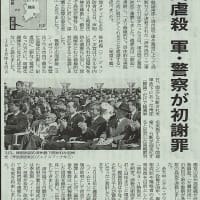 翻訳;新藤かな(港区区議会議員, 無所属)の X (on '23. 12/11)
8ヶ月前
翻訳;新藤かな(港区区議会議員, 無所属)の X (on '23. 12/11)
8ヶ月前
-
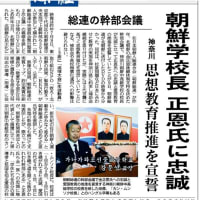 翻訳:「朝鮮学校の存在知って」 無償化求める裁判記録の上映会
9ヶ月前
翻訳:「朝鮮学校の存在知って」 無償化求める裁判記録の上映会
9ヶ月前
-
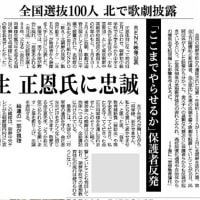 翻訳:「朝鮮学校の存在知って」 無償化求める裁判記録の上映会
9ヶ月前
翻訳:「朝鮮学校の存在知って」 無償化求める裁判記録の上映会
9ヶ月前
-
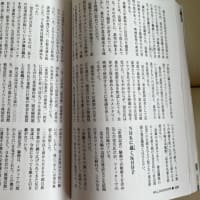 翻訳;崔碩栄の X(on '23. 9/12)
11ヶ月前
翻訳;崔碩栄の X(on '23. 9/12)
11ヶ月前
-
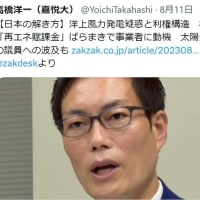 翻訳:高浜2号機の燃料装填完了 関西電力、9月再稼働へ
12ヶ月前
翻訳:高浜2号機の燃料装填完了 関西電力、9月再稼働へ
12ヶ月前
-
![翻訳:[ソウルからヨボセヨ]. アサヒの大逆襲](https://blogimg.goo.ne.jp/image/upload/f_auto,q_auto,t_image_square_m/v1/user_image/40/c2/8f01d7d86ad79316f7e46787892ac0e1.jpg) 翻訳:[ソウルからヨボセヨ]. アサヒの大逆襲
1年前
翻訳:[ソウルからヨボセヨ]. アサヒの大逆襲
1年前
-
![翻訳:[ソウルからヨボセヨ]. アサヒの大逆襲](https://blogimg.goo.ne.jp/image/upload/f_auto,q_auto,t_image_square_m/v1/user_image/6e/77/246585ce51dc216cac7a9d5a930b8e5a.jpg) 翻訳:[ソウルからヨボセヨ]. アサヒの大逆襲
1年前
翻訳:[ソウルからヨボセヨ]. アサヒの大逆襲
1年前
-
 翻訳:「レイプ計画立てている」と女性に脅迫文 元共産党千葉県幹部を起訴
1年前
翻訳:「レイプ計画立てている」と女性に脅迫文 元共産党千葉県幹部を起訴
1年前
-
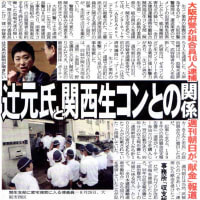 翻訳:関西生コン支部の幹部 威力業務妨害で実刑判決 大津地裁
1年前
翻訳:関西生コン支部の幹部 威力業務妨害で実刑判決 大津地裁
1年前
「Translation」カテゴリの最新記事
 翻訳;白川司(千代田区区議会議員)の X(on '24. 8/1)
翻訳;白川司(千代田区区議会議員)の X(on '24. 8/1) 翻訳;崔碩栄の X(on '24. 8/1)
翻訳;崔碩栄の X(on '24. 8/1) 翻訳;杉田水脈議員(自民党)の X(on '24. 8/1)
翻訳;杉田水脈議員(自民党)の X(on '24. 8/1) 翻訳;北朝鮮、洪水の初動不備で閣僚を更迭 金正恩氏「容認できない人命被害出た」
翻訳;北朝鮮、洪水の初動不備で閣僚を更迭 金正恩氏「容認できない人命被害出た」 翻訳;ドイツ、政府機関のサイバー攻撃への中国関与を断定 「強い言葉で非難」大使...
翻訳;ドイツ、政府機関のサイバー攻撃への中国関与を断定 「強い言葉で非難」大使... 翻訳;朝鮮通信使船 260年ぶりに日本へ /釜山
翻訳;朝鮮通信使船 260年ぶりに日本へ /釜山 翻訳;門田隆将(作家・ジャーナリスト)の X(on '24. 7/31)
翻訳;門田隆将(作家・ジャーナリスト)の X(on '24. 7/31) 翻訳;白川司(千代田区区議会議員)の X(on '24. 7/31)
翻訳;白川司(千代田区区議会議員)の X(on '24. 7/31) 翻訳;西村幸祐(ジャーナリスト)の X(on '24. 7/31)
翻訳;西村幸祐(ジャーナリスト)の X(on '24. 7/31) 翻訳;崔碩栄の X(on '24. 7/31)
翻訳;崔碩栄の X(on '24. 7/31)















※コメント投稿者のブログIDはブログ作成者のみに通知されます